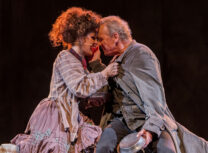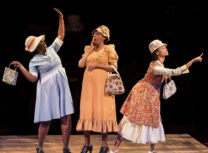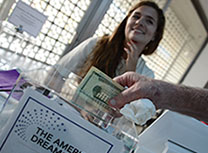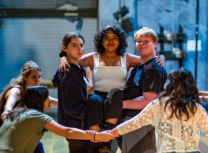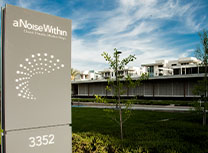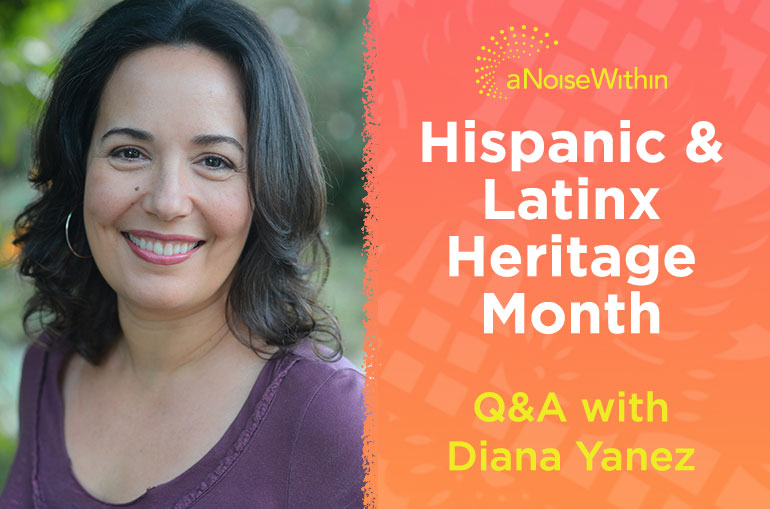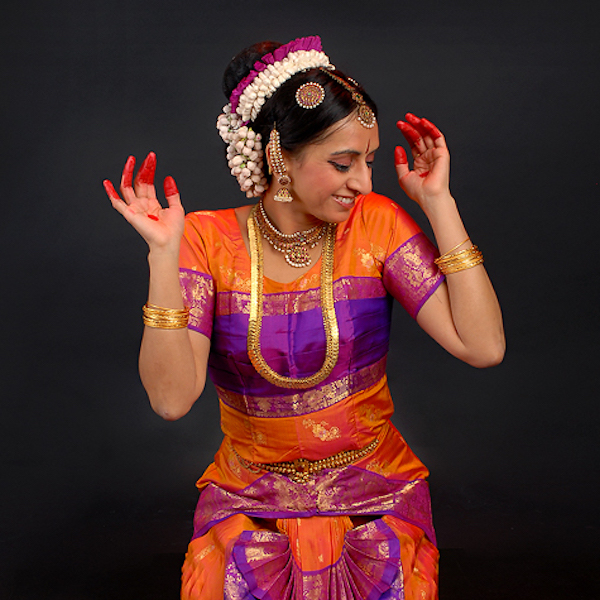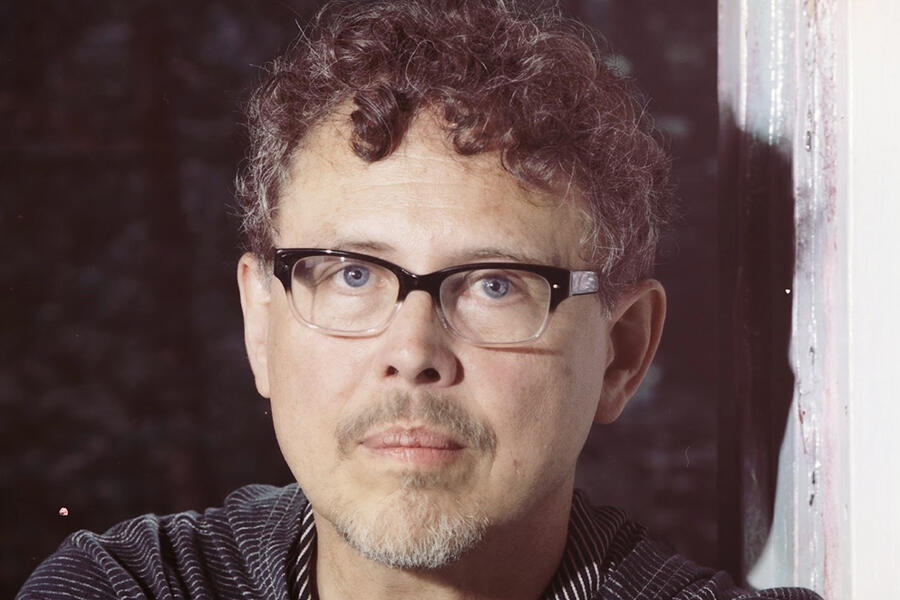Black History Month Feature: Abdullah Hall
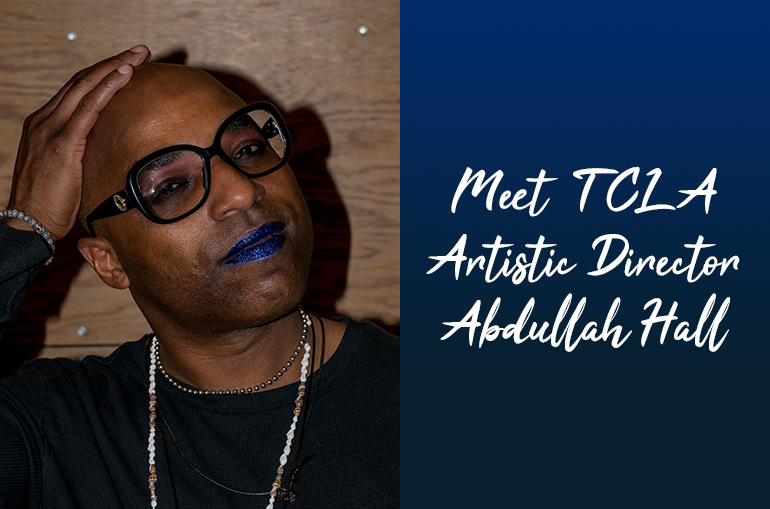
By A Noise Within
February 8, 2021
Abdullah Hall is the Artistic Director of Trans Chorus of Los Angeles, which collaborated with Celebration Theatre and Noise Now for TranSister Radio in April 2019. Today, learn all about Abdullah’s career from musical theatre to Paramount Pictures to their role today as a teacher and the Artistic Director for the largest trans-identified chorus in the country.
How did you get started on your artistic journey?
I majored in musical theatre. I’m a local, so I went to Pasadena City College and studied with Anne Marie Ketchum. After that, I started doing musicals. I’ve been in performing arts since I was a kid. I’m a big proponent of magnet schools, because that’s what led me down my path since I was little.
I came to Trans Chorus of Los Angeles (TCLA) as a singer and a board member. When we had a change and the chorus was going to disband, I stepped up as Interim Artistic Director, along with my colleague Kathryn Davis as the Interim Executive Director. Within the year, they made us the permanent Artistic Director and Executive Director.
I’m an artist by trade. I play the viola. I started out majoring in opera. Then some ill-informed teachers at the time would say to me: “You’re black. You’re queer. You’re not going to find a lot of work in the opera world until you’re way older.” That pushed me into music theatre, which is great because I love it, but I wouldn’t advise any students nowadays like that. I would tell them to just do it.
Before, I worked at Paramount Pictures in business and legal affairs for 20 years. So, when I came into Trans Chorus of LA, my artistic direction became a little bit of a mixture for a chorus. Because Hollywood was my game for so long, I looked at the chorus as I would for any client. I’m pushing and promoting and selling that client, which has great advantages. There’s nothing like working with one of the majors to really understand how Hollywood operates. How to promote an artist. How to look at the product you’re putting out there. We’re a product with a great philanthropic message to get the word on the trans community out there.
How did you get to where you are now?
I have performed my entire life. I’ve been able to make money at it and be successful enough to survive on that. What got me here with TCLA was finding out who I am as a nonbinary person and a nonbinary performer. About six years ago, I divorced from my partner of 20 years. I said I was a gay black man, but I always knew something else was there. I didn’t have the vocabulary of nonbinary. The moment I realized it was when I was on the chorus as a singer and the former Artistic Director asked me how I identified. She explained to me that there was more than what I was looking at. Being with trans and nonbinary people, I felt the most at home. To perform with them made me feel it doubly so.
Martin Barter, who teaches the Meisner technique, used to tell me, “Abby, you’re going to be a teacher like me.” I would say “No, I’m a star!” But Martin would insist that I was a teacher. My old music director Anne Marie Ketchum used to tell me the same thing, and I also told her “No, I’m a star!” She said, “You’re the same age I was when I was teaching you.”
The other part of the journey was taking what I learned from college and from being a self-producer and self-promoter to equip myself to where I am now. It’s so amazing to take music, which I love, and help spread awareness of trans identification and create this beautiful sound at the same time. What we’ve done with TCLA is to be out there, visible, proud and open. That has put a light on the trans community in such a wonderful, positive way. I’m so happy and humbled that I can be a part of that.
How did you find and get connected with ANW?
Jonathan had a great idea of doing a collaboration with Celebration Theatre with Michael Shepperd. Then Michael had the idea of a show called TranSister Radio, a showcase of trans-identified artists. Michael told me “Abby, I immediately thought of you and the Trans Chorus.” I met with Michael and Jonathan. That was probably one of the best collaborations we have had.
I’m a Pasadenan. I knew that trans representation was not out here as much as it is in Hollywood and West Hollywood. Working with Michael Shepperd from the Celebration Theatre, one of the oldest LGBTQ theatres in America, was like being in a master class with an amazing director. The way he formed the show around us singing and other artists performing was amazing.
There was a family who brought their ten-year-old trans daughter to the event. The father said to me, “Seeing this, I know my daughter will be all right.” I thought, “That’s amazing.” This was a big a burly guy. I don’t think he knew what trans was until he heard a doctor say it. I doubt he ever thought he’d be going down this road. But he was the sweetest, nicest man who was there for his daughter. A Noise Within creating those community collaborations they’ve done are simply amazing. I can’t wait until we get back to live shows to do that again because it was really necessary, and it changed ANW for me. For a long time, I thought it was very “high-brow theatre,” and you want this little trans group to come in and sing? Yes!
How does your culture, family background, and history influence your work?
My family is Muslim and Christian. Two religions where being queer is not something I could be like, “Whoo!” Not at all. I’m Jamaican and Pakistani. What both of those cultures had that influenced me was music. My family was constantly singing or had music playing.
My mother was the first in her family to convert from Islam to Christianity. When she converted, me and my siblings and I started singing at church. That was one of the fun things about going to church. You learned either to “sing” or to “SANG.” I wanted to know how to “SANG” because there’s a huge difference there. You can’t get in front of a Black evangelical church with a mic in hand without being ready to turn it out, whether you’re eight or eighty. You learn such complex harmonies, and you learn from singing old Nego spirituals. Or if you’re singing in Urdu and you’re doing a ghazal, and it’s a prayer and it’s going into these amazing quarter tones… You can get amazing abilities with your voice from calling and answering and responding. That part was huge for my family background.
I always had a proclivity for the performing arts. My mother fueled it like crazy. If she was alive now, she’d be interjecting all through this interview.
It’s funny with Black History Month. What we have perceived as Black Americans goes beyond that. That’s why I say “Go Kamala!” because people look at you and they see that you’re an African American person, but never do they think you might be Indian or Pakistani. My grandma used to say “You mix brown and brown and brown, you get Black in America.” That’s basically what it is. We try to lump sum all brown people as this monolith. That’s what’s so great about the arts. Bridging all that together, we can bring such awareness of all of our cultures through the arts.
Out of all your accomplishments in the arts, what are you most proud of?
I’m going to go with my most recent, which is I am so proud to be the Artistic Director of TCLA, the largest premier trans-identified chorus in America, probably the world. What makes me so proud of that is that this chorus started on an idea that was seen on Glee when they did the trans voices episode. That episode that Ryan Murphy wrote, which led to Gay Men’s Chorus and Lindsey Deaton, a trans woman who is a composer from Cincinnati, creating the Trans Chorus of Los Angeles. One thing that Lindsey used to say that I still adhere to is helping trans people find their voice. Kathryn and I took it to the next step in taking trans identification from victimization to victory. That’s something that I learned at home from my grandparents and my mother about being Black in America. “Don’t let anybody victimize you. Take those victimizations and turn them into victory.”
We’ve helped trans people be visible, proud, and bold about being out there. So, if you have a trans woman and her voice is in the lower register of bass-baritone, rather than trying to “stereotypically feminize” that voice, she is proud of her bass-baritone. We have two sopranos. One is a trans man, one is a trans woman. A lot of people in the music world don’t think that a trans woman would be able to sing in that register naturally. We like to defy that and show them that a voice is a unique instrument. A voice is a voice is a voice.
I’m so proud that I get to lead the chorus and so proud that we were the first trans-identified group to ever sing for the Democratic national debates through CNN, and the first trans-identified group called out by a standing president, President Biden, when we participated in the inauguration. That was simply amazing. People were looking at the screen and saying: “Who are the trans people there? They look just like us. They look like regular people!” And I’m like, “Yeah, we’re regular people, what did you expect? We’re regular, boring people.”
Who is your favorite Black author/playwright/artist? What is your favorite work of theirs?
Too many to name. Why are you trying to make me Sophie’s Choice? I was about to just rip off with Baldwin. I have to go playwrights and authors first. In no special order, because I revere them all: Toni Morrison, August Wilson, James Baldwin. Maya’s in there too, but she’s above everybody. She’s up there with Jesus. She’s on her own plane. I love Amanda Gormon.
When it comes to music, my ultimate muse is Phyllis Hyman. She is the most amazing, well-versed person who could do anything with her voice, from Broadway to R&B to opera. Amazing sound taken far too early. My main influences in music would be Phyllis Hyman and Ben Vereen. When I was a kid, I wanted to be Ben Vereen. That’s why I studied musical theatre and did singing, music, dancing, and acting.
We’re so excited to share just a small piece of Abdullah’s story with you! You can learn more here about the Trans Chorus of Los Angeles here.
